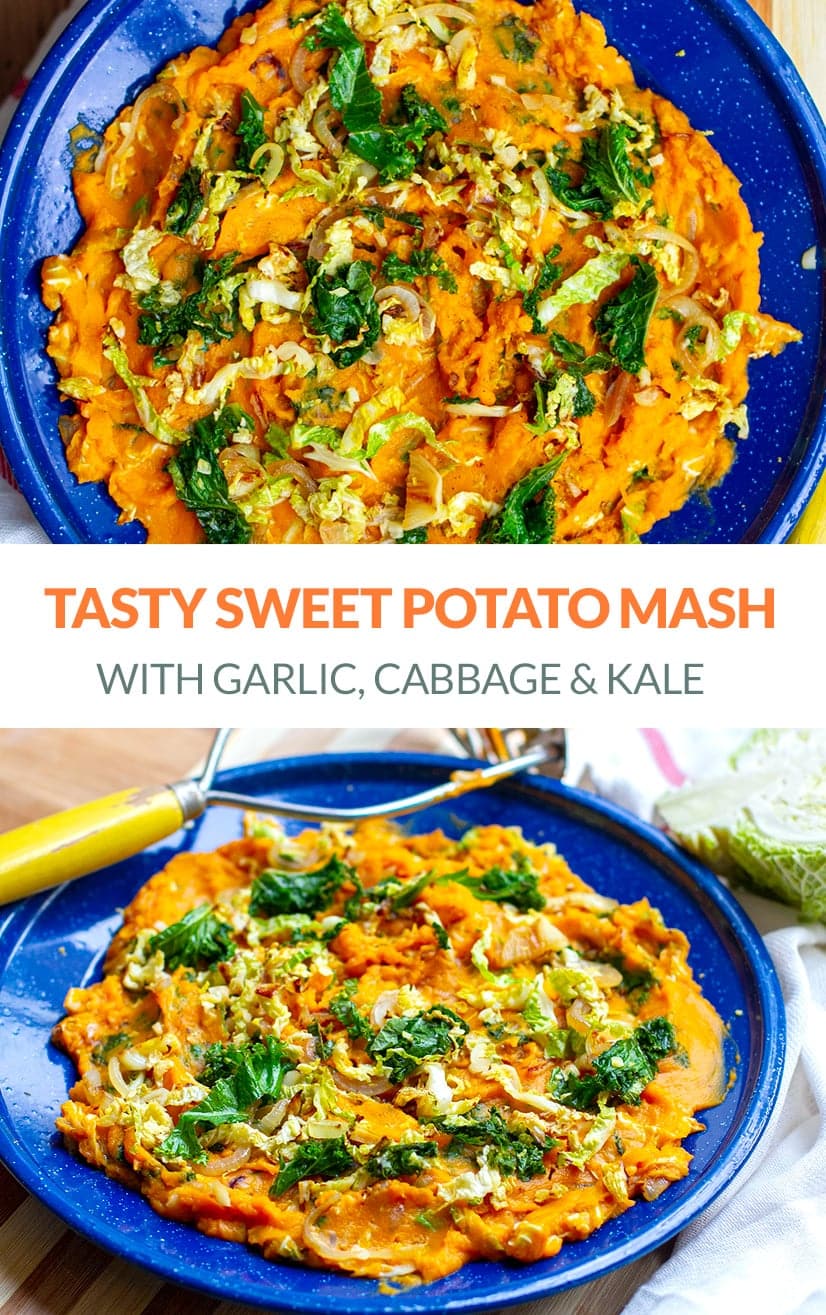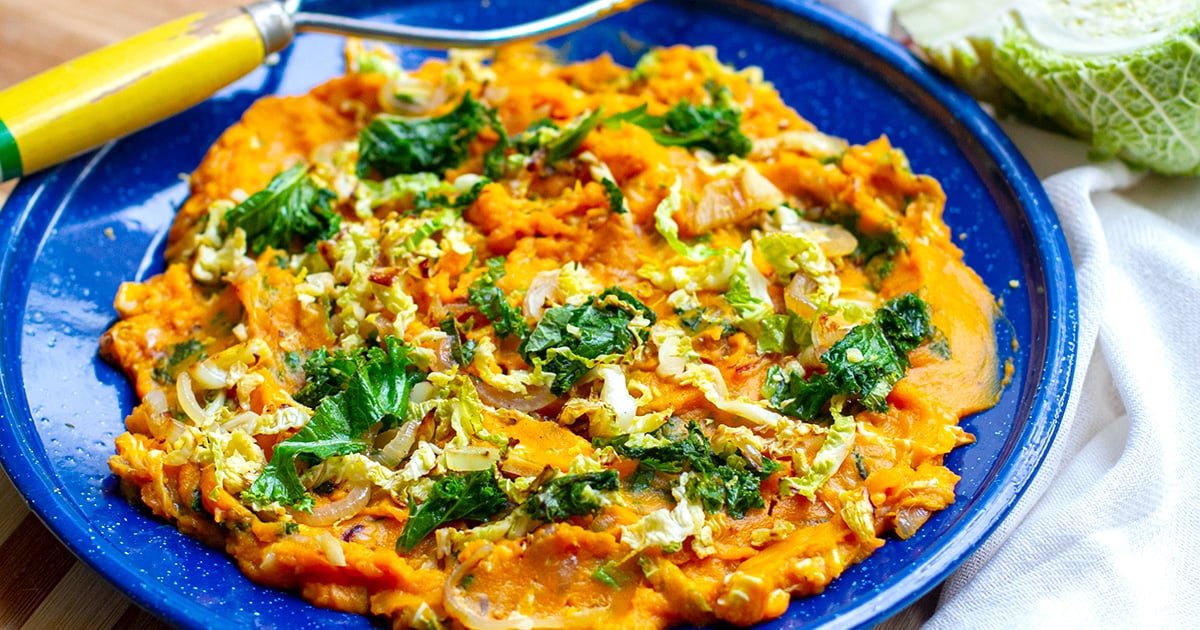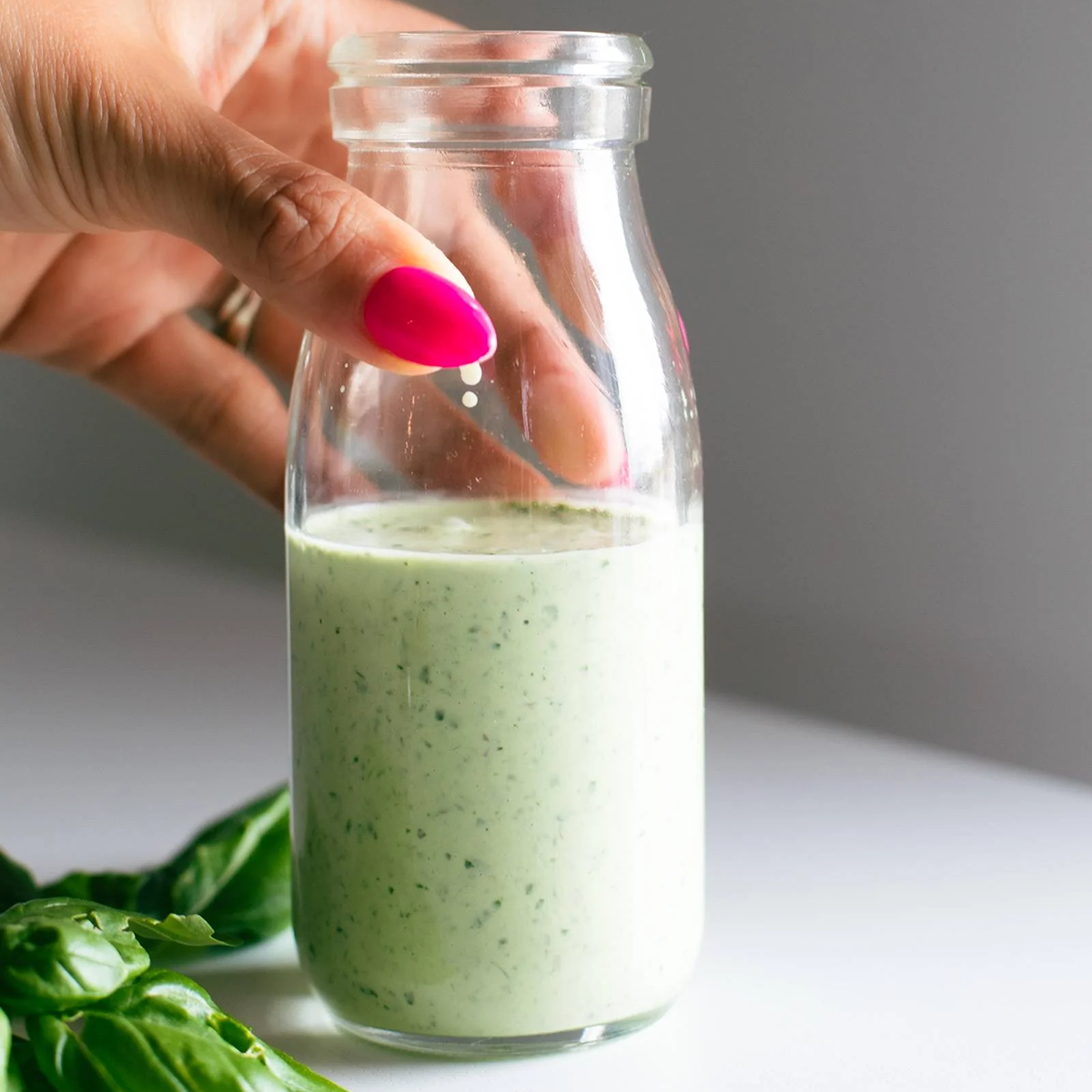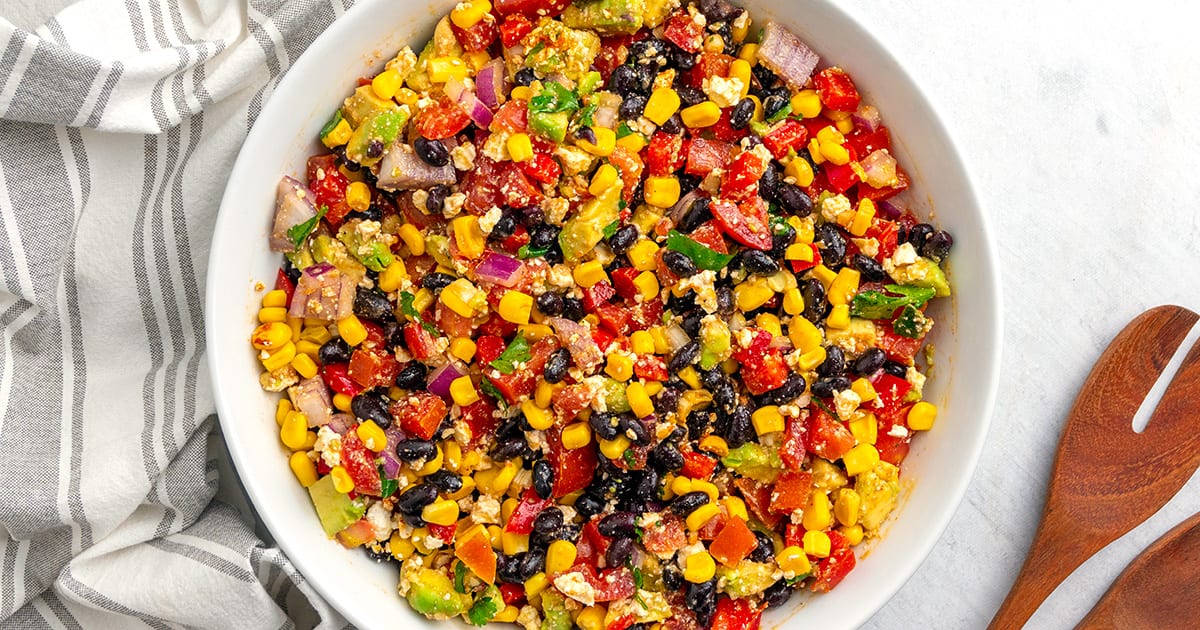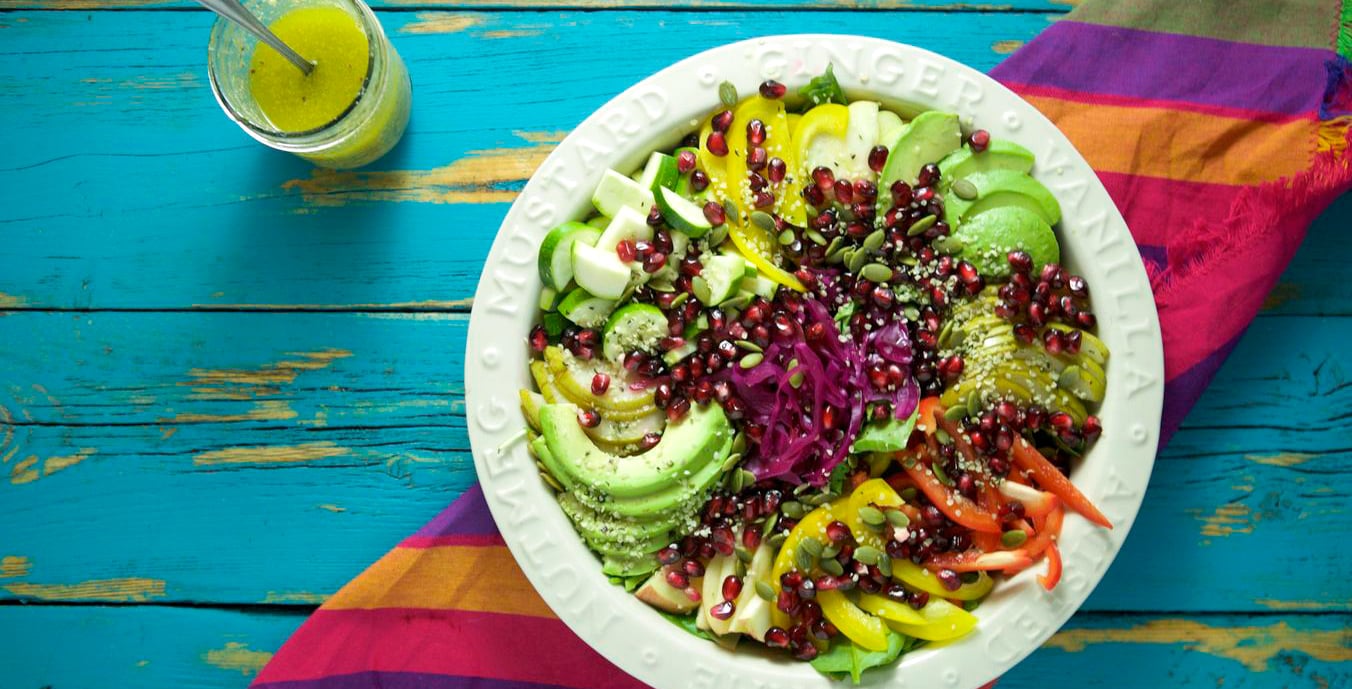This Irish colcannon inspired sweet potato mash comes with sauteed kale, cabbage and garlic, which give it plenty of flavour and lovely crunchy textures. This is a healthy and nutritious sweet potato dish that can be served as a side with pretty much anything. It’s paleo, gluten-free and Whole30-friendly.
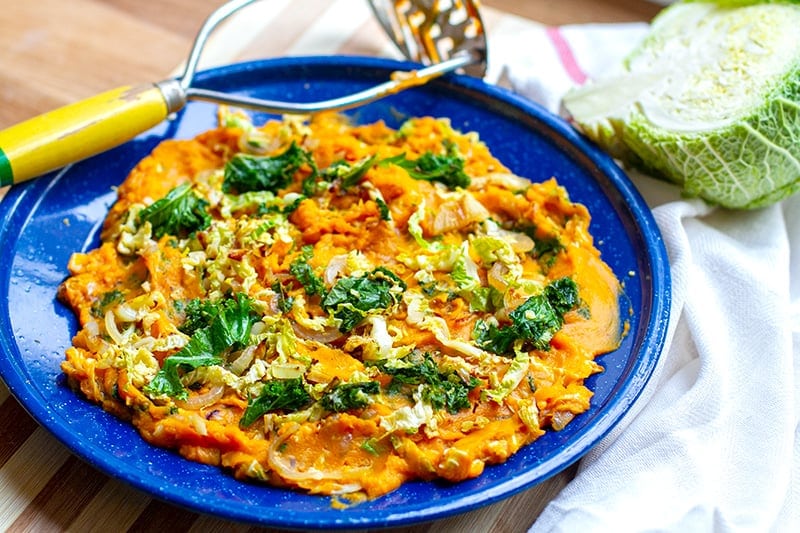
This Irish sweet potato mash recipe came about when I was trying to cook up something fun for St.Patrick’s Day celebrations. We were making my hearty beef stew and I needed a side dish. This seemed kind of appropriate.
One of the most famous Irish dishes served on this day is colcannon – Irish mash potatoes with cabbage and/or kale and butter. Colcannon means ‘white-headed cabbage’ and there are many variations of this dish that have additions of leek, bacon, shallots and other flavourings.
HOW TO MAKE MY IRISH SWEET POTATO MASH
My healthy mash is made with sweet potatoes cooked and mashed, then blended with sauteed onions, savoy cabbage, kale and a little twist of garlic and lemon zest. It’s well seasoned and moistened with ghee and butter. For another kale and sweet potato dish, check out this recipe.
It can be made ahead of time as it keeps well in the fridge (3-4 days).
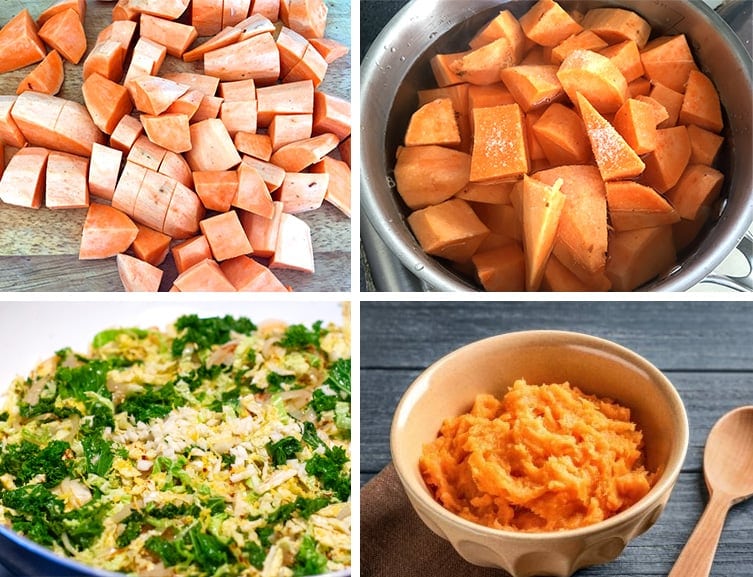
WHAT GOES WITH THIS SWEET POTATO MASH
Mashed sweet potatoes are such good comfort food and this colcannon version goes superbly well with any type of sausages, meatballs, steaks, burgers, pot roast or a stew.
It’s a great vegetarian dish, too. You can serve it as a main with a big side of veggies and some plant-based protein. Check out more of my vegetarian recipes here.
You can enjoy it on St.Patrick’s Day or any other day you feel like something different to your regular mashed potatoes.
I’ll leave you with this Irish quote ‘May you live all the days of your life’ – Jonathan Swift.
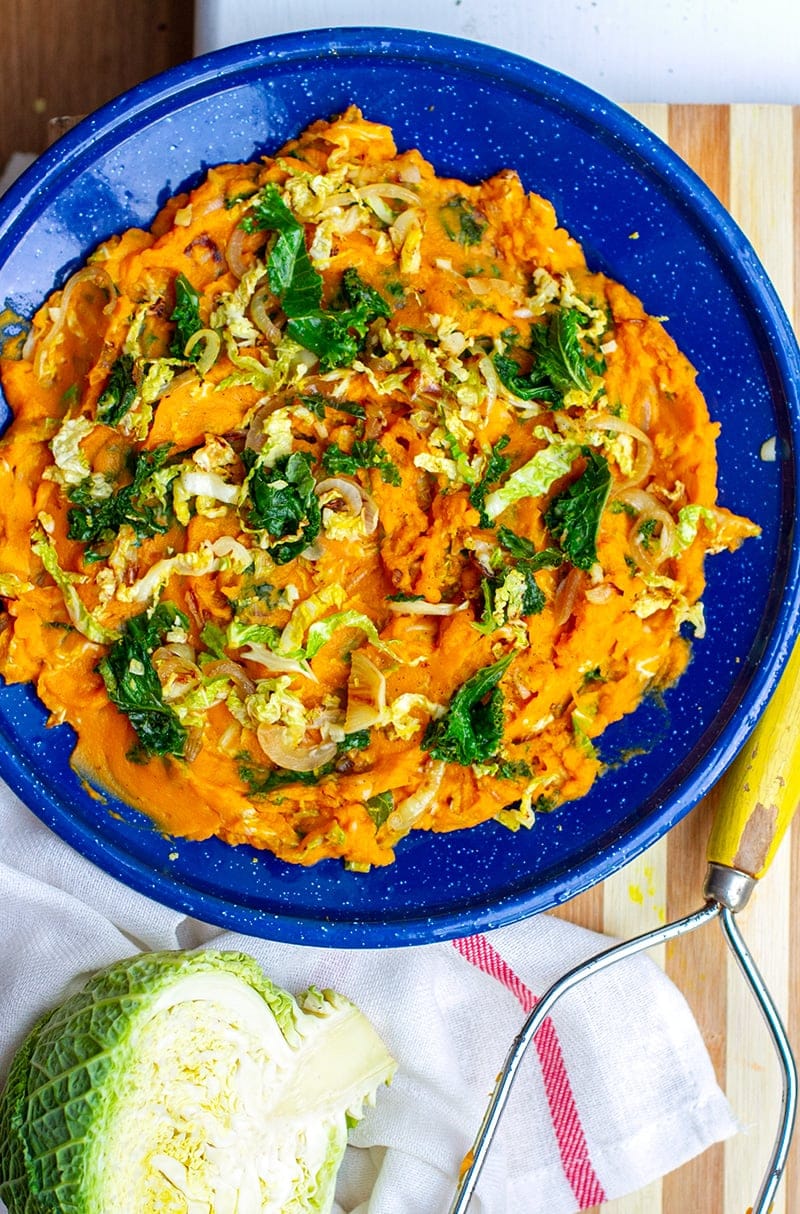
Description
This Irish sweet potato mash colcannon with kale, cabbage and garlic, is a healthy and nutritious side dish that can be served with pretty much anything. It’s paleo, gluten-free and Whole30-friendly.
- Place sweet potato in a medium saucepan with enough water to cover them. Add the stock powder or use liquid stock instead of water. Bring to boil and cook for 10-15 minutes until soft when poked with a fork.
- Heat a large frying pan with a dollop of ghee and sauté the onions for 3-4 minutes. Add kale and cabbage and another dollop of ghee. Season with a 1/2 teaspoon of sea salt and cook over medium heat for about 5 minutes, stirring occasionally. The cabbage and kale will start to wilt and decrease in size. Add garlic, lemon zest and a few tablespoons of water and cook for a further 4-5 minutes. Set aside.
- Finally, strain the potatoes and place them in a food processor or use a potato masher to mash them into a smooth puree. Season with a good pinch of nutmeg, black pepper and add the butter. Process until well incorporated and smooth and transfer to the frying pan with the the cabbage. Stir together and taste for salt. Serve with a little extra lemon zest and back pepper on top. Enjoy!
Notes
This variation on a potato mash can be made with any starchy tuber such as pumpkin, white potato, parsnip and celeriac. Kale can be replaced with spinach or other leafy greens.
Nutrition
- Serving Size: 1 cup
- Calories: 221
- Sugar: 9.5 g
- Sodium: 648.5 mg
- Fat: 8.5 g
- Saturated Fat: 5.3 g
- Carbohydrates: 34.5 g
- Fiber: 6.1 g
- Protein: 3.5 g
- Cholesterol: 21.5 mg
MORE HEALTHY MASH RECIPES
Check out this Spiced Sweet Potato Cauliflower Mash
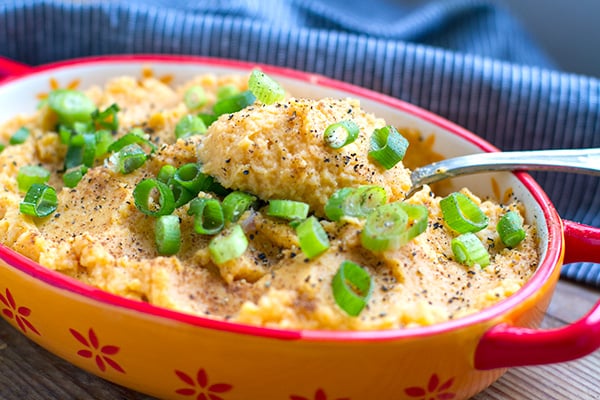
Or, my Parsnip Cauliflower Mash With Garlic Butter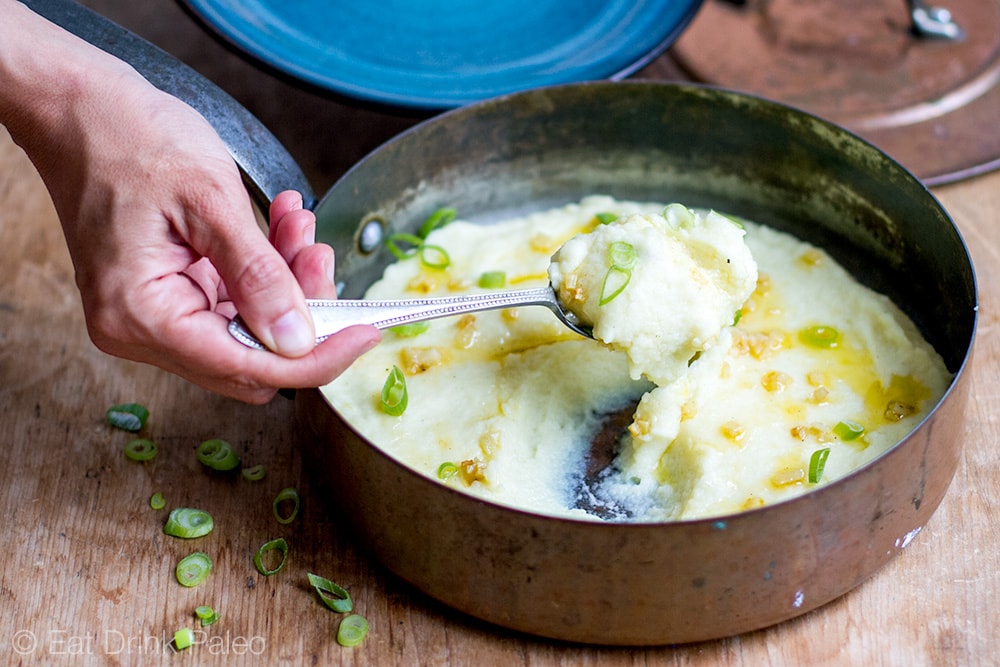
SAVE THIS PALEO SWEET POTATO MASH RECIPE TO PINTEREST
